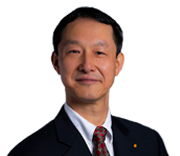Multiple myeloma is the second-most common blood cancer after non-Hodgkins lymphoma. Although it boasts a five-year survival rate of 50%, most patients eventually die from relapse of the disease.
Now a researcher at Houston Methodist Research Institute is trying to develop immune therapy for multiple myeloma that might provide patients with a better choice of treatment for their disease.
Dr. Qing Yi, who chaired the department of cancer biology at the Cleveland Clinic Lerner Research Institute, returns to Texas as Associate Director of the Houston Methodist Research Institute and Director of the Research Center for Hematologic Malignancies. He was recruited with the help of an Established Investigator Award from CPRIT. Dr. Yi was formerly a tenured professor of medicine at The University of Texas MD Anderson Cancer Center.
Read More
Multiple myeloma is the second-most common blood cancer after non-Hodgkins lymphoma. Although it boasts a five-year survival rate of 50%, most patients eventually die from relapse of the disease.
Now a researcher at Houston Methodist Research Institute is trying to develop immune therapy for multiple myeloma that might provide patients with a better choice of treatment for their disease.
Dr. Qing Yi, who chaired the department of cancer biology at the Cleveland Clinic Lerner Research Institute, returns to Texas as Associate Director of the Houston Methodist Research Institute and Director of the Research Center for Hematologic Malignancies. He was recruited with the help of an Established Investigator Award from CPRIT. Dr. Yi was formerly a tenured professor of medicine at The University of Texas MD Anderson Cancer Center.
Dr. Yi is developing a monoclonal antibody — a type of protein secreted by immune cells — that binds to multiple myeloma cells. These antibodies can engage other parts of the patient’s immune system as well as enable chemotherapy or other targeted therapies to work better.
While at MD Anderson, Dr. Yi developed a monoclonal antibody that bound to multiple myeloma in mice, but can’t be used to treat human patients because the mouse-derived proteins would be rejected. He’s “humanizing” the antibody by keeping the region of the mouse monoclonal antibody that binds to multiple myeloma and embedding it in human-derived proteins. If he’s successful in retaining the antibody’s ability to bind to multiple myeloma cells, without prompting immune system rejection, the antibody could be commercially developed for treating patients.
A second area of focus includes better understanding the environment around multiple myeloma cells that protects them from being attacked by the immune system; which is as important for treating cancer as killing the cancer cells themselves.
Third, he hopes to identify a subset of T-cells—the killer cells used in immune therapy — that are more resilient. T-cells used in current therapies can be effective antitumor agents, but die soon after injection and don’t persist in the body. Dr. Yi is hoping to develop T-cells that are both better at curing cancer and last longer. He’s using multiple myeloma as a model, because he has more than 25 years experience with this disease, but his findings would be applicable for other types of cancers as well.
Texas is one of the few states that is large enough to be able to invest in cancer research, Dr. Yi says. “Cancer affects all of us, and it is crucial and necessary to invest in cancer research.” Dr. Yi’s mother and sister have both been affected by cancer; his mother died of lung cancer in 2018. “It’s devastating,” he says.
Dr. Yi received his undergraduate degree in medicine from Jiangxi Medical College, in Jiangxi, China, and began his Ph.D. in microbiology and immunology at Sun Yat Sen University of Medical Sciences in Guangzhou, China. He received his Ph.D. in medical science from the Karolinska Institutet in Stockholm, Sweden. He spent time as a professor both in China and Sweden before coming to the U.S. in 1998 as a tenured associate professor of immunology at the University of Arkansas for Medical Sciences in Little Rock. He first came to Texas in 2004 as a tenured associate professor of medicine at MD Anderson. He left Texas for Cleveland in 2013 as chair of the Department of Cancer Biology at Lerner Research Institute and professor of the Cleveland Clinic Lerner College of Medicine of Case Western Reserve University.
Read Less

